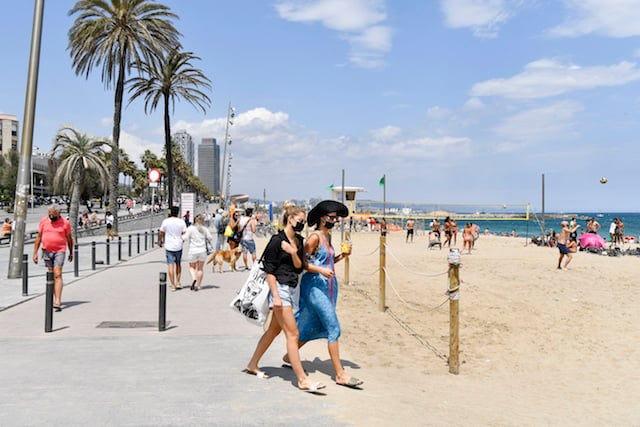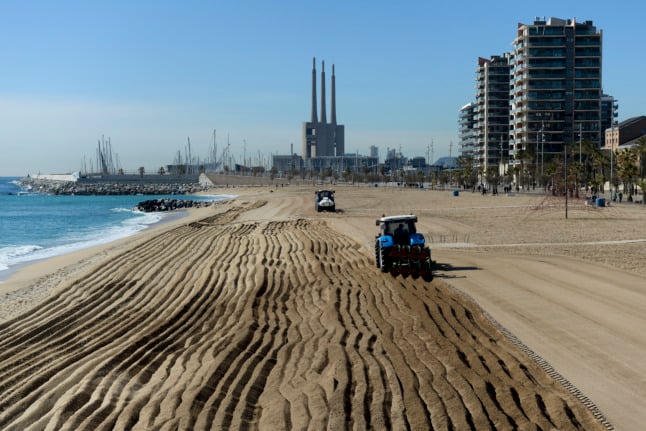So just who is Artur Mas?
The 57-year-old Mas is the controversial president of Catalonia, one of Spain's wealthiest regions with over 7.5 million inhabitants, and with a language and culture that set it apart from the rest of Spain.
From a wealthy Barcelona family, Mas has worked his way up the ranks in Catalan politics, serving on the Barcelona city council for several years before becoming a minister in the Catalonia in 2003.
He then spent seven long years in opposition — a period which saw him become increasingly committed to the idea of independence for Catalonia.
Since 2007, he has headed up the so-called Refoundation of Catalanism movement, with its emphasis on giving Catalonia increased decision-making powers.
"Catalonia has arrived at the point where it needs the instruments of an independent state like Austria or Holland," said Mas in 2012, in a clear statement of intention.
Why has Mas been in the news lately?
Since leading the centre-right CDC party to power in regional elections in late 2010, the staunchly pro-Europe Mas has talked up the idea of an independent Catalan state.
Along the way, he has divided public opinion. Many see the president as an opportunist who is using the independence debate to bolster both his own political career and the fortunes of his party which has only been able to govern in coalition with Catalonia's nationalist ERC party.
Others, meanwhile, place him at the head of the independence vanguard.
In late December, Mas stepped up this independence campaign by announcing the region would hold a non-binding referendum on the self-rule issue in late 2014, a move which Spain’s central government in Madrid was quick to dismiss.
Prime Minister Mariano Rajoy didn't hesitate to call the ballot illegal, saying it wouldn't go ahead.
"This initiative collides head-on with the foundation of the constitution which is the indissoluble unity of the Spanish nation," Rajoy said.
He also warned that an independent Catalonia would have to leave the European Union, a fact which Mas conceded some days later, although he said a hypothetical independent Catalan state would immediately apply for reentry.
Is that the end of the story?
Far from it. Mas used his recent New Year’s speech to restate his desire for the poll.
"Please let us vote," said the former student of economics at Barcelona university, who also expressed a hope that Spain wouldn't come to see Catalonia as an adversary.
The region wanted to be "an ally, a good ally" to Spain in the future, he added.
Mas recorded this message shortly before it become public that Spain's Foreign Ministry had sent a 210-page pro-Spanish unity book to all of the country’s overseas embassies and consulates.
On Thursday it also emerged that Mas had recently sent letters to various European leaders, asking them to support the Catalan cause.
Has he received any responses yet?
A spokesperson for the German government, Georg Streiter, said on Thursday that they knew nothing about the letter.
Sources then told Spain’s Huffington Post that they knew of the existence of the letter because of media reports, but that no official response was likely to be forthcoming.
But the Catalan government says it has already received other responses.
And what about Mas the man? Is he a megalomaniac hell-bent on running his own country?
On the contrary, Mas comes across as a rather unassuming character.
Fluent in English and French — he went to Barcelona's Lycée Français and The Little Prince is one of his favourite books — he is a good public speaker, but not someone who appears destined to lead an independence movement.
The UK's Independent newspaper describes him as a regular churchgoer who is reported to have been going to the same hotel every summer for the last 40 years. When he moved house, he even stayed within the same Barcelona apartment block.
Mas has also hinted he may not stay in politics for much longer. Recently he told Italy's La Repubblica newspaper he would soon leave politics. He hinted that one more term might suffice.
"I'm doing what I'm doing because of a collective project for the future which I've committed myself to. Politics doesn't excite me. I'm tired, but it's necessary."
"I want my life back," Mas told La Repubblica.





 Please whitelist us to continue reading.
Please whitelist us to continue reading.
Member comments